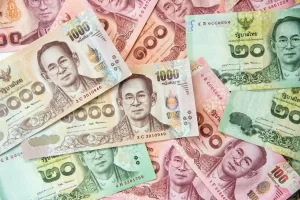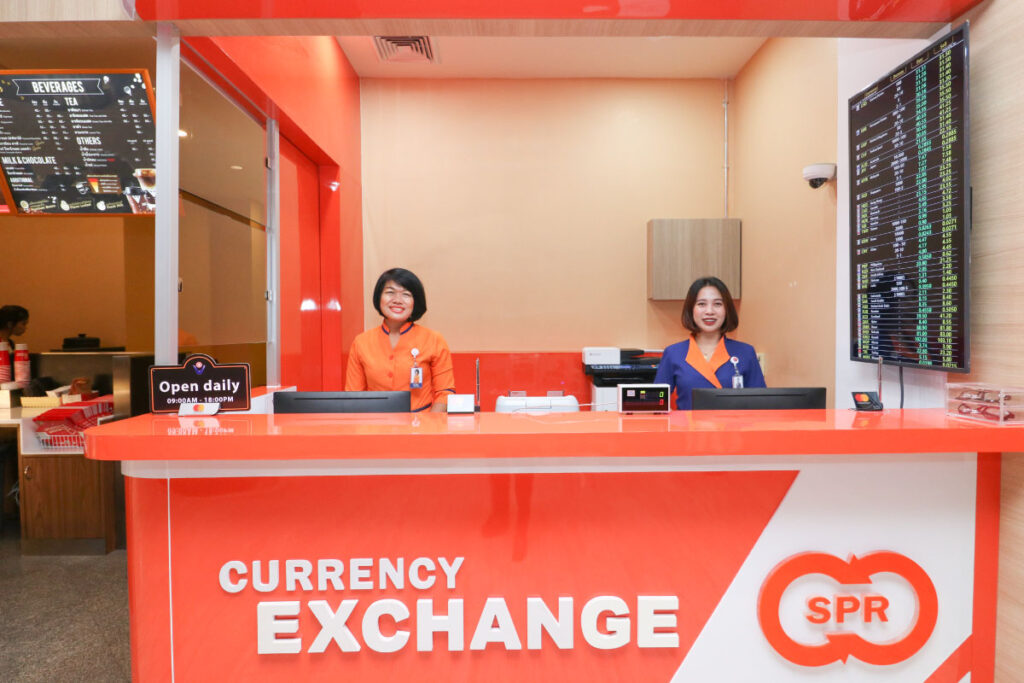It seems that everything in Thailand is vibrant and colorful, including the currency – the Thai Baht. Known for its bright colors and intricate designs, the Thai Baht is a symbol of the country’s rich culture and heritage.
Thai Baht
The Thai Baht, also known as THB, is the official currency of Thailand. It is denoted by a symbol ฿. The bills come in different denominations, ranging from 20 baht to 1,000 baht. Each note features a portrait of a past Thai king on the front and images of Thai landmarks on the back.

The bright and vibrant colors of the baht bills correspond to different denominations, making it easy to identify the value of each bill at a quick glance.
- 20 baht note is blue
- 50 baht note is green
- 100 baht note is brown
- 500 baht note is purple
- 1000 baht note is red
Thai currency is also available in coins – 1 Baht, 2 Baht, 5 Baht, and 10 Baht coins. Each of these coins carries a distinct appearance, making them easily distinguishable from one another.
Thailand is a very cash-based society, with many businesses preferring to receive payment in cash. Credict cards and other forms of electronic payment are becoming more common in Thailand, particularly in larger cities and tourist destinations. However, it’s still a good idea to carry cash when traveling to more remote areas or when shopping at local markets, where electronic payment options may not be available.
Respect The Currency
Thai currency, featuring the image of the Thai king, holds cultural and historical significance. Thai people deeply respect their king, and disrespecting him could have serious consequences. It is customary to handle the currency carefully, avoiding dropping or throwing it. Stepping on money or throwing money at someone is seen as disrespectful and rude, as it represents the king. Also, make sure your bills are in reasonable condition with no rips or pen marks on them. Most banks and exchanges will not accept notes if they notice even the smallest piece of writing on them.
Thai Baht Exchange Rate
You can easily find the exchange rate for THB to your home country currency by performing a quick online search. Although it does fluctuate, the current rates are-
.029 THB to 1 USD
.027 THB to 1 EURO
So when a vender is asking you for 100 TBH, realize that this is roughly only $3.
How to Exchange Money
Compare exchange rates and fees before exchanging money to get the best deal. If possible, avoid exchanging money at hotels or airports, as they often offer lower exchange rates. Carry your passport with you, as you will need it to exchange currency.
To find the best exchange rate, wait until you’re in Thailand to change cash. If however you need a small amount for immediate expenses, it may be worth it to pay a little more for the convenience of exchanging some money before your flight.
When in Thailand, you can withdraw baht from an ATM. Be sure to notify your bank before traveling. There are ATM cash machines at Bangkok Suvarnabhumi airport. The airport rail link has better rates at the basement level. ATMs are also available around Thailand even on smaller islands. Most machines will allow you to select English instructions. Some travelors prefer using bank ATMs for added security and some of the best exchange rates. Banks such as Kasikorn Bank, Siam Commercial Bank, and Bangkok Bank provide good exchange rates and have ATMs on site. Be aware that ATMs often add a fee of 220-250 Baht, in addition to any fees from your own bank.
Suvarnabhumi Airport in Bangkok also offers multiple money exchange options. Currency exchange booths are located in the arrivals hall and departure lounge, offering competitive rates. Checking exchange rates beforehand is recommended for a fair rate. It is advisable to avoid exchanging money at the airport if possible as rates may be higher compared to the city.

In addition to the main Thai banks, there are a number of authorised money exchange businesses in Thailand. One of the companies which consistently receives positive feedback from frequent visitors to Thailand is SuperRich. They have exchange counters at a number of locations around Bangkok including shopping centres and Skytrain stations.
Whenever changing cash in Thailand, carry your passport with you. Although some smaller outlets may not always ask for it, banks and money exchangers are supposed to take a photocopy of passports (for foreigners) or ID cards (for Thai nationals).
Dynamic Currency Conversion
Dynamic currency conversion (DCC) is a service that lets customers use their credit or debit cards in foreign countries and pay in their home currency. This service, however, comes with higher exchange rates and extra fees for the customer. Merchants and payment processors may also earn a commission from the conversion. Although it might seem more convenient because you can see what you are paying in your home currency (e.g. USD or euro) it will almost always be at a rate that is far worse than the standard conversion rate. It’s generally advisable to avoid dynamic currency conversion and opt to use the local currency.

0 Comments